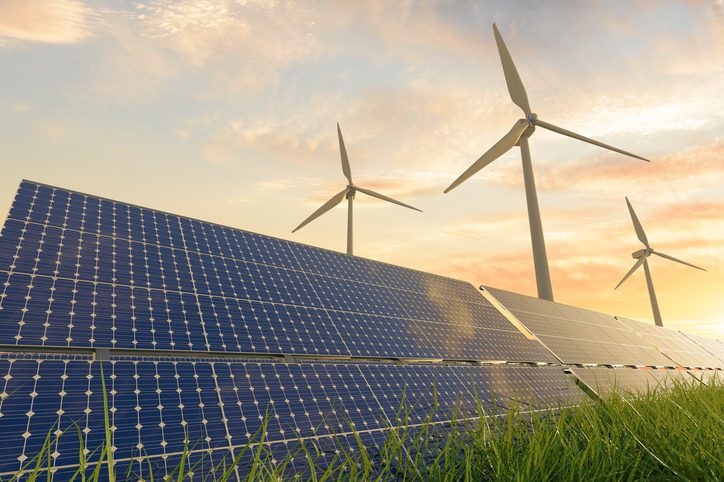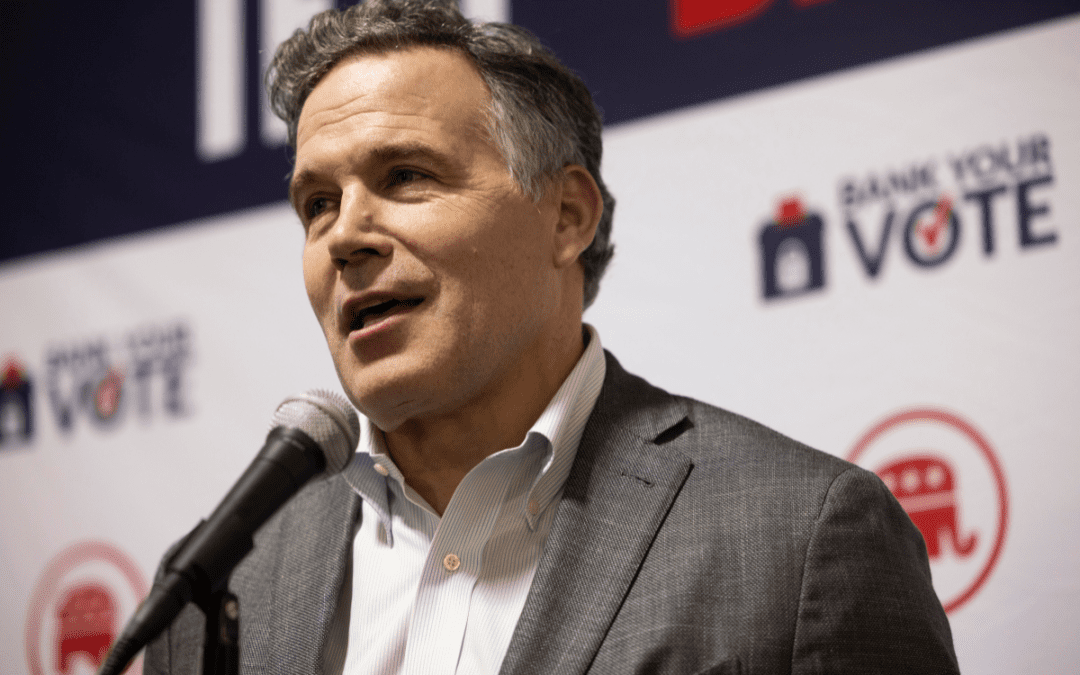
(Marian/Getty Images)
In 2020, Adam Schaller, 3rd-generation owner and operator of Lakeshore Die Cast in the southwest Michigan village of Baroda, installed solar arrays to reduce his business costs.
Today, with grants from the Inflation Reduction Act’s (IRA) Rural Energy for America Program (REAP), Adam has expanded his arrays, offset 100% of his costs, and sells more power than he buys. Existing federal legislation strengthened by the IRA, along with Adam and his father’s commitment to running a profitable business with a positive community footprint, transformed Lakeshore Die Cast into a hometown employer that competes successfully with foreign companies.
Adam’s story is one of thousands that mark the two-year anniversary of the IRA and CHIPS and Science Act this August, and the three-year anniversary of the Bipartisan Infrastructure Law (BIL) in November. While the passage of these historic federal investments was a hard-fought victory, their true significance lies in the concrete improvements they are beginning to bring to people’s lives — and the potential to do much more, especially for people in under-resourced communities across the country.
In a consequential election year, these local projects also help people personally connect to civic participation, demonstrating the tangible benefits government can offer. This is why people vote.
No matter who holds power come January, we must do everything we can to protect IRA, CHIPS, and BIL’s ambitious goals to lower costs, create good jobs, provide local clean energy solutions, and bedrock sustainable economic development.
As the executive directors of the Heartland Fund network, the largest effort in the country to invest in leaders engaging rural and small town Americans, and BuildUS, a pooled fund helping working people grow a strong economy and clean energy future, we urge our partners in philanthropy, advocacy, and civic engagement to join us in a robust, nonpartisan effort to maximize the value of these federal investments by doubling down on their successful implementation.
IRA, CHIPS, and BIL represent an historic shift away from past policies that favored the wealthy and resulted in decades of divestment, offshored jobs, and too many underserved people and communities being “left behind.”
This shift is picking up steam on both sides of the aisle — Farrah Stockman notes in her profile of Jen Harris in the New York Times that there are no candidates in this year’s elections blindly promoting the free market. Rather, across the country, Americans are embracing the idea that when everyone has a pathway to prosperity, we are all stronger as a result. Regardless of who will get to rebrand this new economy, if allocated and implemented successfully, these federal investments will directly reduce costs for working families; lift up local businesses; fund technology that can benefit numerous sectors; and empower people to implement practices that will put more money into their pockets.
As dollars are just beginning to flow, third party analysis of their impact is only emerging. But analysis of their potential impact is readily available. For example, the Brookings Institution estimates that a whopping $464 billion of IRA, CHIPS, and BIL funding is especially relevant for rural areas. The IRA presents rural communities with a $200 billion opportunity to advance climate solutions – if they are able to get their fair share of the estimated $800 billion in climate investments. And a report commissioned by the BlueGreen Alliance from the Political Economy Research Institute (PERI) finds that the more than 100 climate, energy, and environmental investments in IRA will create more than 9 million good jobs over the next decade — an average of nearly 1 million jobs each year.
On the ground, examples of the funds’ impact are powerful and increasing. When the Cocopah Tribe in Southwest Arizona made the decision to build an $8 million solar farm on a closed landfill, they were concerned about its significant price tag but eager for the community improvements it would bring. But with grant funding within BIL that could pay for the entire effort in two years, the project will ultimately save the Tribe $332,000 in annual operating costs and more than $14 million over 30 years.
Equally exciting, workers at the New Flyer facility in Anniston, Alabama won the ratification of a life-changing union contract and a community benefits agreement supported by Jobs to Move America that resulted in increased wages and provisions that will promote measurable hiring and promotion goals to ensure people from historically disadvantaged groups are offered jobs and opportunities. The win was energized by a $5 billion investment in electric buses through BIL that supported worker organizing and quality jobs, a clear example of how the investments are already enabling improved conditions for workers.
Philanthropy, advocacy, and civic engagement must continue bridging the gap between federal programs and most people’s ability to access them. That is why both Heartland’s Resource Rural program and BuildUS are deeply committed to the extraordinary work of our grantees who are developing compelling local projects, educating communities, providing tools and technical support to local elected officials and community leaders, and creating a direct line of communication between stakeholders and the relevant agencies that hold the levers controlling the flow of funding.
As we celebrate the milestone anniversaries of IRA, CHIPS, and BIL, we must deepen our commitment to realize their full potential. We must make sure that the money flows — soon, and easily — to the communities that need it most and can use it best. This election season, we hope the promise of their positive impact spurs increased enthusiasm and voter engagement in November. Come January, when trillions of dollars will have been disbursed or will be in the pipeline, nothing should be of greater priority to whomever is in power than joining us in our work to guarantee that IRA, CHIPS, and BIL create tangible, immediate, improved economic outcomes for all Americans.

Did your absentee ballot count? Today the last day to fix it as Senate race remains tight
Democrats are pushing those who live in Philadelphia and the surrounding counties and voted by mail to check the status of their mail-in ballots and...

PA Democrats hold onto the PA House after Frank Burns wins reelection in deep-red district
PA House Democrats were able to pull off the unthinkable and hold onto the PA House by a 102-101 majority following Tuesday’s election results. It...

Republican David McCormick flips pivotal Pennsylvania Senate seat, ousts Bob Casey
The Associated Press called the race Thursday, though Casey did not concede. With votes still being counted, McCormick led Casey by about 31,000...

We asked, you answered: How do you feel about the 2024 election results
Our newsletter readers shared their thoughts on the outcome of the pivotal 2024 presidential election. Because we live in a democracy, we had an...

Harris says nation must accept election results while urging supporters to keep fighting
Harris delivered her remarks at Howard University, her alma mater and one of the country's most prominent historically Black schools, in the same...



